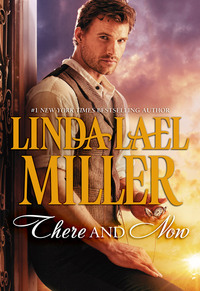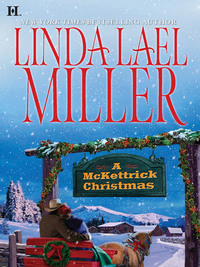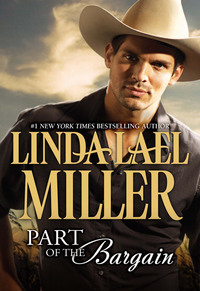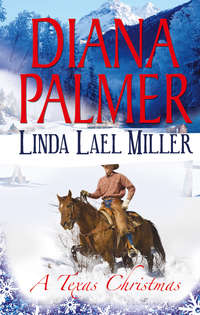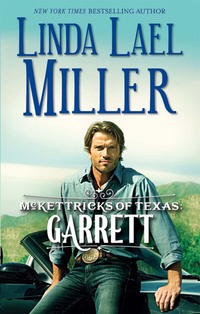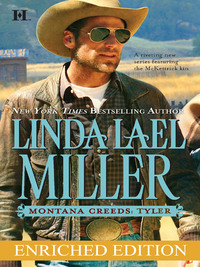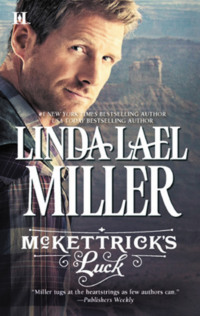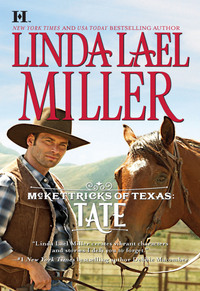
Полная версия
Big Sky Secrets
Damn him.
“Since this conversation is getting us nowhere,” she said, quietly reasonable, “it would probably be best if we said good-night.”
The evening, balmy before, had grown chilly, and goose bumps rippled across Ria’s flesh. Conversely, her insides felt molten, like lava about to blow out the side of an otherwise tranquil mountainside.
Landry chuckled, but it was a rueful sound, a little raw, a little broken. He looked away, looked back, and, inside the trailer, Bessie and her huge “calf” fidgeted impatiently, and it seemed possible, at least to Ria, that they might actually turn the whole thing over, right there in her driveway.
“You’re probably right,” he conceded, without a trace of generosity. “But I’ll be back tomorrow. We can look the—crops—over together, and come to some kind of agreement.” A brief pause. “Not that I can really picture you agreeing with me about much of anything.”
By then, Ria was fresh out of bluster and ready comebacks—civil ones anyhow.
So she let the gibe pass, nodded stiffly and, at last, went back inside the cottage. Once over the threshold, she shut the door hard behind her and turned the dead bolt with a reverberating click.
Through the door, she heard Landry Sutton laugh.
* * *
“THAT IS ONE hardheaded woman,” Landry remarked aloud as, back behind the wheel of his truck, he negotiated a wide U-turn and drove slowly back up Ria Manning’s driveway to the county road beyond.
Minutes later, at his own place, he backed the trailer he’d borrowed from Zane up to a corral gate, got out of the truck and proceeded to release Bessie and her calf into the pasture at Hangman’s Bend.
That done, he parked the truck, still hitched to the trailer, alongside the house.
Thanks to Highbridge, light glowed in the kitchen windows, and Landry felt a shade less lonely—and less bleak—because, for the next little while anyway, he wouldn’t be alone.
“Alone,” of course, was a relative term.
He tended to a few chores in the barn, checking on the horses, making sure there was hay in every feeder and no debris in the waterers in the stalls and finally headed for his half-finished house.
He’d borrowed the stock trailer from Walker Parrish, but there was no need to return it tonight. Anyhow, his muscles were starting to ache again, from the bronc ride that morning, and his pride wasn’t in great shape, either. Bad enough that he’d been thrown three times in front of half of Parable County; the confrontation with Ria Manning had left him feeling scraped raw on the inside.
Okay, yeah, the lady had a right to be pissed off about the damage Bessie and her strapping calf might or might not have done to her property, but, hell, he’d offered to make good for that, hadn’t he? What else could he do, at this point?
Damned if he had a single clue.
One thing was abundantly clear, though—nothing he said or did was going to please Ria. She just flat-out didn’t like him, buffalo-on-the-loose notwithstanding, and while Landry didn’t usually give a rat’s ass about other people’s opinions, this was different. This time, with this particular woman, he cared.
And that might have been the most troublesome part of all.
Reaching the house, Landry crossed the flagstone patio and stepped into the kitchen, which was spacious and ultramodern, with travertine tiles on the floors, gleaming granite on the counters and the latest in top-of-the-line appliances. He nodded a greeting to his butler, Highbridge, before heading for one of several steel sinks to wash up a little.
Highbridge, tall, skinny as a zipper turned sideways and exuding English dignity from every pore, stood with his hands clasped behind his back and his spine straight. For him, this was relaxed.
“I trust the most recent—buffalo incident—is behind us?” he murmured, obviously stifling a smile.
Landry dried his hands. “For the time being,” he conceded, a mite on the grumpy side now.
Highbridge consulted his heirloom pocket watch, drawn from a special pocket in his long-tailed butler’s coat. Cleared his throat. “Will there be anything else, sir?” he asked.
Landry moved to the oven—make that ovens—where his dinner awaited, carefully covered in foil and still warm. “No,” he responded tersely. “You can change out of that monkey suit and do whatever it is you do, once the workday’s over.”
Using a potholder, he removed the plate from the oven, lifted a corner of the foil and peered beneath it. Cornish game hen, roasted to crispy perfection, wild rice, exquisitely seasoned, and green beans cooked up just the way Landry liked them best—boiled, with bacon and chopped onion.
His mood might have been on the sour side, but his stomach rumbled with involuntary anticipation.
Highbridge, usually anxious to vanish into his well-appointed quarters to watch some reality show on TV or, conversely, read from one of his vast collection of multivolume tomes, like Churchill’s A History of the English-Speaking Peoples, lingered. Cleared his throat again, a clear indication that there was more he wanted to say.
With a silent curse, Landry carried his plate to the trestle table in the center of the vast room, where cutlery, a starched linen napkin and a glass of red wine awaited him, and sat down.
“What?” he nearly barked.
“Ms. Manning,” Highbridge began carefully. He faltered and made another attempt, but that failed, too, and he just stood there, hands still clasped behind his rigid back, looking reluctant and stubborn, both at once.
“What about her?” Landry demanded, plunging a fork into the succulent game hen on his plate.
“Well,” Highbridge ventured, “she did have something of a scare this evening, you must admit.” Even you. “Is she all right?”
Landry reached for the saltshaker and proceeded to oversalt his food, mainly because he knew the act would bug his butler, who made every effort to serve healthy meals. Right or wrong, Landry felt like bugging somebody.
“She’s as prickly as a porcupine with PMS,” Landry answered flatly. “I don’t know if she’s ‘all right,’ but she’s definitely her usual ornery self.”
A corner of Highbridge’s normally unexpressive mouth quivered just slightly, though whether this indicated annoyance or amusement was anybody’s guess.
Taking his etiquette cues from Henry VIII, Landry ripped off a drumstick and raised it to his mouth, bit into it, chewed and swallowed with lengthy deliberation, hoping Highbridge would take the hint and retire for the evening.
Landry had, after all, used up his quota of words for the day, and felt no inclination to chat—especially if the subject of the exchange was Ria Manning.
Yet again, Highbridge cleared his throat. “I see,” he said.
Landry might have rolled his eyes, if he hadn’t been so busy chowing down on all that good food. After the day he’d put in, he was ravenous. “And?” he prompted pointedly. “Obviously, you have more to say. Spill it, okay?”
Highbridge arched both bushy white eyebrows and stood his ground. “‘Spill it’?” he echoed, letting it be known that he considered the freewheeling use of slang one of America’s many lesser charms.
“Explain,” Landry explained, and none too politely.
“It’s just that Ms. Manning is a very nice, hardworking person,” Highbridge supplied.
“Hardworking,” Landry conceded, somewhat testily now, “yes. ‘Nice’? I don’t think so.”
“She has very good manners,” Highbridge insisted, sounding miffed.
Landry paused in the act of devouring his supper and studied the butler solemnly. Highbridge, a man with a mysterious past, had been working for him since before he’d married Susan—a lifetime ago. “Really?” he replied. “I hadn’t noticed.”
To Highbridge, hard work and good manners were everything. Reasons enough, as far as he was concerned, to overlook proclivities ranging from littering to international terrorism.
“You do understand that Ms. Manning is a widow?” Highbridge went on.
“Yes,” Landry admitted, thinking of the wide gold wedding band on Ria’s left-hand ring finger. If she was wearing it after all this time, it followed that she was still hung up on her dead husband. An oddly discouraging insight. And where was this conversation headed, exactly? He had no idea. “So I’ve been told,” he finished.
Highbridge sighed, as though balancing the unwieldy weight of the world on his narrow shoulders. “If there’s nothing else—”
Landry leveled a look at his only full-time employee, a look that said Highbridge should have gone off duty hours ago.
Some of Zane’s ranch hands moonlighted for Landry now and then, and a cleaning lady came in three times a week, but other than that, Highbridge was the whole staff. When a picture of the butler dressed to ride the range popped into Landry’s mind, complete with a Stetson, a sun squint and woolly chaps, he had to smile.
“Have a good night,” he said.
Highbridge nodded, with his usual formality, and left the kitchen.
Once he was gone, a rush of fresh loneliness passed through Landry, which was crazy, because Highbridge wasn’t the type to shoot the breeze, whatever the time of day, but there it was.
He finished his dinner, imagining how things were on his brother’s half of the ranch, over beyond the creek. By now, Cleo would have come back from town and made supper, and after the meal, Brylee would have chased the housekeeper off, good-naturedly, of course, so she and Zane could clear the table and load the dishwasher. They’d talk about their day—Zane, no doubt, would offer a comical account of Landry’s bronc-riding episode, and Brylee would elbow him and tell him to be nice, and then she’d blush as they both remembered summer-afternoon lovemaking.
Whoa, Landry thought, derailing his previous train of thought by shoving his chair back from the table and getting to his feet. He carried the remains of his supper—gourmet fare by anybody’s standards, so he had no business complaining on that score—over to the sink. There, he tossed the bones in the trash bin and scraped and then rinsed his plate and stowed it in the machine, along with his utensils and the wineglass.
Maddie Rose Sutton had raised her boys to clean up after themselves, swearing she wasn’t about to unleash a couple of slobs on a world full of women who had enough to do as it was, without kid-gloving some man. By now, it was a habit.
Landry stood still, there at the sink, remembering his mom. She’d had it tough, Maddie Rose had, but she’d never complained, as far as he could recall. Just when he was getting established and Zane was about to sign the contract to make his first movie, and they could have been assets to their mother for once, instead of liabilities, she’d come down with a case of flu that turned out to be some virulent strain of leukemia instead. After a week in a small hospital in the backwater Dakota town where she’d been waiting tables for the past few months, Maddie Rose had breathed her last.
Worse, she’d been alone when the time came, except for a friend or two from the café where she’d worked. He and Zane had both been far away, doing their own thing, blissfully unaware that Maddie Rose’s flu wasn’t flu at all.
Once they were informed, it was too late to say goodbye, or thank you, or I love you, Mom.
Landry sighed. Maybe one of these days, he’d be able to think of his mother without guilt and regret, but, just now, that day seemed far off.
He should have been there for her—Zane, too. The way she’d always been there for them.
He was just about to shut off the lights and retreat to his bedroom, to read or watch TV or maybe just lie down and stare at the ceiling with his hands cupped behind his head, waiting in vain for sleep, when the wall phone rang.
Landry scowled at the thing for a moment or two, tempted to ignore it. Unlike the phones in his bedroom and home office, this one hadn’t come equipped with caller ID, wasn’t even cordless. Highbridge’s doing, he recalled grimly—the butler didn’t entirely approve of too much modern technology, was suspicious of what he considered unwarranted convenience.
So Landry picked up the receiver, in case something was wrong over at Zane and Brylee’s, or those damn buffalo had broken through a fence line somewhere and made for Ria’s flowers again. He answered with a rather brisk “Hello?”
If the caller turned out to be a telemarketer or a survey taker, he might just take the person’s head off, long-distance.
The reply was a low, rumbling laugh, gratingly familiar. “Landry? Is that you, boy?”
Jess Sutton—his father.
“What do you want?” Landry asked. He didn’t hear from the old man for years at a time, and when he did, it was because a favor was about to be asked, so there was no point in beating around the proverbial bush.
Jess gave another chuckle. “Is that any way to talk to your old dad?” he chided, with just the slightest edge in his voice.
Landry said nothing. He knew what was coming, and saw no reason to make it easy.
His father sighed, long-suffering, patient as the day was long. As if. “I was wondering how Nash is doing,” Jess went on quietly, letting it be known that he was hurt but magnanimous enough to generously overlook the injury.
“In that case,” Landry replied, frowning, “why didn’t you call Zane and Brylee’s place? Nash lives with them—but I guess you were aware of that, since you signed him over like a quit-claim deed.”
A long silence followed; then Jess cleared his throat. “Hell, Landry,” he finally muttered, “I know I was a lousy father to all three of you. No need to rub it in.”
Landry relented, but only a little. “Lousy” didn’t begin to describe the kind of parent Jess Sutton had been—back when he and Zane were growing up, the man had mostly steered clear, and they’d liked it that way. After a while anyhow.
At first, they’d missed him to the point of genuine pain. They’d waited for him to change, come and get them and their mother, bring them home for good. They’d all live happily ever after then, like a real family. Not.
“Okay,” Landry said. “But I’d still like to know why you’d call here looking for Nash, when you know he’s elsewhere.”
“Zane and I don’t get along very well,” Jess said, aggrieved. He never seemed to relate consequences to anything he’d said or done, but that was nothing new. Most likely, he regarded himself as the innocent victim of betrayal, misunderstanding and just plain bad luck.
“He won’t ask you for child support, if that’s what you’re worried about,” Landry supplied ungenerously. Zane had had himself a successful movie career, a kind of lucky fluke, before he’d come to Three Trees to settle down and marry Brylee, and money wasn’t a problem.
“Do you ever let up?” Jess asked sadly.
Poor, beleaguered Jess Sutton. Good-looking, smooth-talking and not worth the powder it would take to blow him to hell.
“Look,” Landry replied, wishing he hadn’t answered the call in the first place, “as far as I know, Nash is fine. He’s grown about a foot in the last year, he does all right in school, he likes girls and he’s rodeo-crazy. All pretty normal.”
If only Jess actually cared about any of those things, or about the boy himself. The truth was, asking about Nash was just a way in, a conversation starter.
“I’m in a little trouble,” Jess said, after another silence, this one so long that Landry had been about to hang up, thinking the connection had been broken, when the man finally spoke.
Landry closed his eyes. Waited. Here it comes.
“Are you still there?” Jess asked.
“I’m still here,” Landry confirmed, opening his eyes again, shoving his free hand through his hair. He’d been expecting this, but that didn’t make it any easier to handle.
“I need a small loan,” Jess thrust out.
Landry felt a stab of pity then, but he didn’t let on—not because he was trying to spare his father’s pride, though. Jess was the classic con man, always on the lookout for a soft spot, and if he found one, he’d zero in on it like a suicide bomber.
“How small?” Landry asked. With Jess, the word loan was a misnomer. Handout was the better word, since he had no intention of paying it back.
“Five thousand dollars,” Jess said, and now the edge was back in his voice.
Landry gave a low whistle. Five thousand dollars wasn’t a lot of money to him personally, not these days anyway, but it was still a respectable sum, hard to come by for most people. “Go on,” he said.
“You want an explanation?” Jess asked, testy all of a sudden. It was an interesting approach, considering he was the one in need of some help.
“Yeah,” Landry said. “I guess I do. What happened this time?”
Jess took his time answering; he might be sulking, but he could be making up a story, too.
Finally, he launched into his spiel, and damned if it didn’t sound like the truth, for once. “I got into this private poker game down here in Reno—one of those backroom kind that aren’t entirely legal—and I was doing real good for a while, before my luck went sour. These guys aren’t the kind to wait around for their winnings, son. They’ll have their money or a strip of my hide if I don’t pay them, pronto.”
Landry shook his head, tired, disgusted and sore all over. “Damn it,” he muttered, “why did you get into the game in the first place, if you were broke?”
“I anted up a hundred dollars,” Jess said defensively. “That’s all. Before I knew it, I was up a couple of grand, and it was still early, so I couldn’t just cash out and leave everybody high and dry, now, could I?”
Shit, Landry thought. “Of course you couldn’t,” he rasped.
Jess didn’t pick up on the irony. Or maybe he just figured he couldn’t afford to remark on it. “I started losing, as the night went on,” he said hurriedly, as though talking fast would convince Landry that he ought to ride to the rescue, “but I figured things would start going my way again, so I gave my I.O.U. and—”
“And now you’re down five grand?” Landry supplied, when Jess fell silent.
“I’m only down three, actually,” Jess admitted. “But I’ve got some other bills to pay before I can leave town.”
“To go where?” Landry asked. He didn’t really care what the destination was, as long as it wasn’t Hangman’s Bend.
“Boise, I guess,” Jess speculated. “I know some people there.”
“Right,” Landry answered. Jess “knew some people” just about everywhere. Trouble was, if he hadn’t slept with their wives or girlfriends, he probably owed most of them money.
Maybe both.
“I’ve only got till tomorrow morning, when the banks open, to pay up,” Jess went on. “Once these guys find out I can’t make good on my marker, they’re going to want blood.” He sucked in an audible breath. “My blood. Are you going to help me out, or not?”
Landry let his forehead rest against the door of the cupboard directly above the wall phone. He knew he’d be enabling the old man if he gave him the five thousand, making bad matters worse. Still, the alternative—the strong likelihood that his dad would wind up sprawled in some back alley, beaten and bloody, or even dead—was no good, either.
“Where do I send it?” Landry asked.
CHAPTER THREE
RIA BARELY SLEPT that night, one moment worrying about her financial future and the next, lusting after Mr. Wrong, that being Landry Sutton, the first man she’d really been attracted to since Frank’s death. With widow guilt compounding physical and emotional exhaustion, she was out of the house as soon as the sun rose, taking no time for coffee, let alone breakfast.
Those things could wait. Right now she wanted a good look at whatever havoc the buffalo had—or hadn’t—wreaked on her farm, without Landry there to gauge her every reaction. Or to guess somehow that she’d lost sleep wondering what he looked like without a shirt, what it would be like if he kissed her or to feel the weight of that hard, uncompromisingly masculine body of his poised over hers, then settling into her softness and, finally, claiming her...
“Stop it!” Ria ordered her inner love slave, right out loud, as she marched through the still-dewy grass in the front yard, bent on inspecting poppies and daisies and other colorful residents of her flower beds, performing a sort of horticultural triage.
Some plants, she soon discovered, had been squashed, or even uprooted, but to her surprise and relief, most of the blossoms had survived. Ready for a new day, they were already raising their brightly colored faces toward the big sky and the first promise of sunshine.
Hardly daring to hope everything would be all right after all, Ria trudged over to the field of zinnias, a glorious ground quilt of red and magenta, orange and gold, pink and purple and white. There was no evidence of the buffalo invasion here, no tracks in the fertile soil, no broken stems and stripped petals. She was moving on to the field of gerbera daisies, which abutted the carnations, when she saw Landry’s truck turn into her driveway, glinting silver in the morning light.
Although her first impulse was to dive between the rows of multicolored daisies and hide there until her visitor gave up and left, Ria planted her sneakered feet firmly and stood her ground, lifting her chin a jot to convince herself, as well as Landry, that she wasn’t intimidated, and waited.
Landry parked the truck at the edge of the field, got out and strolled toward her in that easy, rolling-hipped way of men who were used to meeting challenges and coming out on top.
Ria gulped. Unfortunate choice of words, she thought, glad she hadn’t voiced the observation out loud.
Sunlight danced in Landry’s hair and lent him a full-body aura of glittering gold, and last night’s fantasies rushed to the surface of Ria’s skin, fiercely visceral now, and pulsed there, dangerous and primitive and absolutely delectable.
She frowned hard, hoping Landry wouldn’t pick up on the fact that she was ridiculously attracted to him, physically, at least—a man she didn’t even like. Maybe her friends back in Portland were right—she’d been too quick to start over in a new place, among strangers, wasn’t over the trauma of losing Frank, needed grief therapy, not a change of scene.
Landry’s smile was taut, but it still opened a trapdoor in the pit of Ria’s stomach and made her heart pound under her lightweight sweatshirt. “Well,” he said, coming to a stop one row over from where she stood, and she almost giggled at the contrast between his blatant self-confidence and all those delicate flowers at his feet, “what’s the verdict?”
Ria felt a blush climb her neck and throb in her cheeks. Damn it.
“There doesn’t seem to be any real harm done,” she finally managed, after reminding herself that Landry had told her he’d be stopping by, and so what if she hadn’t believed him for a second? She’d just have to deal. “No thanks to your marauding buffalo.” Even as Ria spoke, she was measuring the shadows under his eyes, the tight lines of his jaw, the hard set of his shoulders. He hadn’t shaved, she noticed, and the effect was disturbingly appealing.
You’ve been alone too long, girl, Ria thought.
For one terrible moment, she thought she’d spoken aloud, because Landry gave a rough bark of laughter, as if he’d heard her. He tilted his magnificent head to one side and studied her as though he couldn’t quite get a handle on whatever it was that made her tick. Dressed the way he was, in jeans and a long-sleeved green cotton work shirt and beat-up boots caked with manure, it was hard to picture Landry in his former incarnation, managing a multibillion-dollar international investment fund back in Chicago, where he’d surely have worn three-piece suits, custom-tailored, of course, and paid hundreds of dollars for a haircut.
This morning, he was all cowboy.
All man.
“You sound disappointed,” he observed, after a few moments, his tone on the dry side. “That your crops aren’t lying in ruin, I mean.”
Ria’s blush went from mild to moderate to off-the-charts, all in the space of a second or so. “Don’t be ridiculous,” she sputtered. “Of course I’m not disappointed—”


